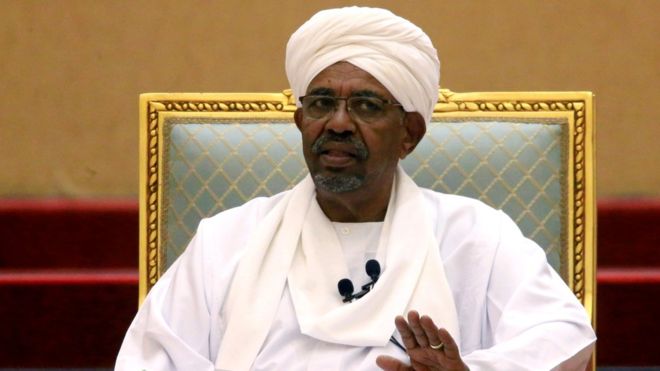
Sudan is the third largest country in Africa, by area as well as population. With a population of approximately 43 million it formed the largest demography in Africa before the 2010 formation of South Sudan. Its capital is Khartoum and the main ethnic groups Sudanese Arab (approximately 70%), Fur, Beja, Nuba dominate the demographics. After the secession of South Sudan, the geographical area of Sudan has approximately reduced by 25% estimating to about 1.86 million square kilometres. Post Secession Sudan lost most of its oil reserves, estimated to be between five and seven billion barrels.
Recently South Sudan has been in the news following reports of mass protests and citizen agitations due to issues of hyperinflation, mass unemployment and rising dictatorship in the country. The ountrywide demonstrations, which began on December 19, 2018 in the city of Atbara, quickly spread across the country engulfing the capital Khartoum as well. The protests which had ignited over the cause of rising costs of bread and fuel, have since widened to include the call for the overthrow of long-time President Omar al-Bashir, who has withheld office since 1993.
The violent protests resulted in the stepping down of the President after fallout of the military. The political scenario in Sudan is yet to be stabilized.
Below is a detailed timeline of Sudan’s political history since its independence:
January 1, 1956- Sudan gains its independence after an agreement between the United Kingdom and Egypt.
1972 – Seventeen years of civil war end with the signing of the Addis Ababa Agreement between the north and the south.
1977 – Oil is discovered in south-western Sudan. Civil war in the 1980s and 1990s prevents much exploration or development of the oil deposits.
1983 – Colonel John Garang De Mabior leads a mutiny of army soldiers, reigniting the civil war.
June 1989 – Omar Al Bashir seizes power in a coup.
October 1993 – Bashir becomes president of Sudan when the Revolutionary Command Council is dissolved, and Sudan is restored to civilian rule.
February 2003 – The conflict in Darfur begins when black African rebel groups attack government property, accusing the government of neglecting Darfur in favour of the Arab population in Sudan.
2005 – A comprehensive peace agreement is signed by representatives from the north and the south. Part of the agreement includes independence for southern Sudan within six years.
July 2008 – The International Criminal Court files genocide charges against Bashir.
March 2009 – The International Criminal Court at The Hague issues an arrest warrant for Bashir for a five-year campaign of violence in Darfur.
April 2010 – Sudan’s National Election Commission certifies Bashir as the winner of recent presidential elections with 68% of the vote.
February 2011 – The Southern Sudan Referendum Commission announces that 98.83% have voted for separation from North Sudan, Africa
June 2011 – Fighting between the northern Sudanese Armed Forces and the Sudan People’s Liberation Army of southern Sudan erupts near Kadugli, the capital of oil-rich Southern Kordofan state.
June 2011 – Representatives from Sudan and South Sudan sign an agreement calling for the immediate withdrawal of Sudanese troops from Abyei and for joint supervision of the disputed region.
July 2011 – South Sudan becomes an independent state, with a population of eight million people.
July 2011 – Bashir announces economic austerity measures in a speech to parliament. He also details plans for a new constitution, new currency, and greater political freedom.
January 2012 – South Sudan shuts down oil production after accusing Sudan of stealing $815 million of its oil.
January 2012 – According to Office of the UN High Commissioner for Refugees, more than 78,000 people have fled Sudan’s South Kordofan and Blue Nile states since August of last year.
April 2012 – Bashir declares a state of emergency for cities in the provinces of South Kordofan, White Nile and Sinnar, which are on the eastern half of its border with South Sudan(Africa).
September 2012 – Bashir and Kiir sign a deal to resume oil exports and establish a demilitarized zone and principles of border demarcation, but do not reach a deal on the status of Abyei, a disputed region claimed by both countries.
January 2014 – Bashir travels to South Sudan for talks with Kiir. Unrest in South Sudan has left more than 1,000 people dead and cut South Sudan’s oil output, affecting the economies of both countries.
September 2016 – The Sudanese government is accused of using chemical weapons against the people of Darfur, according to a report released by Amnesty International. According to the organization, up to 250 people have been killed by chemical weapons since the Sudanese military campaign began in January.
February 2019 – Bashir declares a year-long state of emergency in response to months of protests nationwide and calls for his resignation. The protests are organized by a group of professional unions including doctors, lawyers, teachers and students and supported by two of the largest opposition parties.
April 2019 – Bashir is arrested and forced from power in a military coup. A military council assumes control for two years to oversee a transition of power.May 2019– The current wave of protests is still taking place in multiple cities across Sudan(Africa), including in Khartoum, Atabara and Gadarif against military appointment of new de facto ruler. States of emergency and curfews have been declared in several of the protesting cities.
Video Courtesy- BBC World News
Also read: http://diplomacybeyond.com/violence-in-sudan-un-strongly-condems-civilian-deaths/








